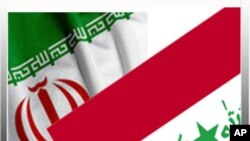In recent weeks, there have been reasons to believe the Iraqi people will see a future shaped by their own determination to forge a strong and unified Iraq, and not by those who would deny them the chance for peace, freedom and security.
One reason is the historic parliamentary elections that took place in March, when 62% of eligible Iraqi voters turned out to fill the three hundred twenty-five seats on the Council of Representatives, choosing candidates from among several thousand fielded by three hundred six political entities. No one party or block won enough seats in the election to govern without building coalitions, and Iraqi leaders now face the task of forming an inclusive and representative government that meets the needs of all the Iraqi people.
Another reason for hope is the increasing power and capacity of Iraqi security forces, who are taking the lead in protecting their homeland. That capacity was dramatically demonstrated earlier this month by a series of successful operations, spearheaded by Iraq's security forces, against several of al-Qaida in Iraq's most important commanders, resulting in their deaths.
In an interview on Fox News Sunday, General Ray Odierno, America's top military leader in Iraq, praised the performance of Iraq's security forces and its political leaders. He was critical, however, about the negative role that neighboring Iran continues to play in Iraq: "They still provide lethal aid. They provide training for those who continue to try to create instability in Iraq. They continue to try to increase their influence. . . .They do not respect Iraq's sovereignty."
General Odierno says while Iranian interference remains a threat to stability in Iraq, he is optimistic about the future: "The Iraqis are nationalists. They will reject unwanted Iranian influence. They want to overall have a good relationship with Iran like they do with all their neighbors."
In recent testimony before Congress, U.S. Defense Undersecretary for Policy Michele Flournoy expressed a similar view concerning Iran's interference in Iraq: "Yes, they're trying to influence. Yes, we have to watch their meddling very carefully. But I don't think they're going to be successful," said Undersecretary Flournoy, "because I think ultimately Iraqi nationalism will trump Iranian meddling."
Iranian interference remains a threat to stability in Iraq.




